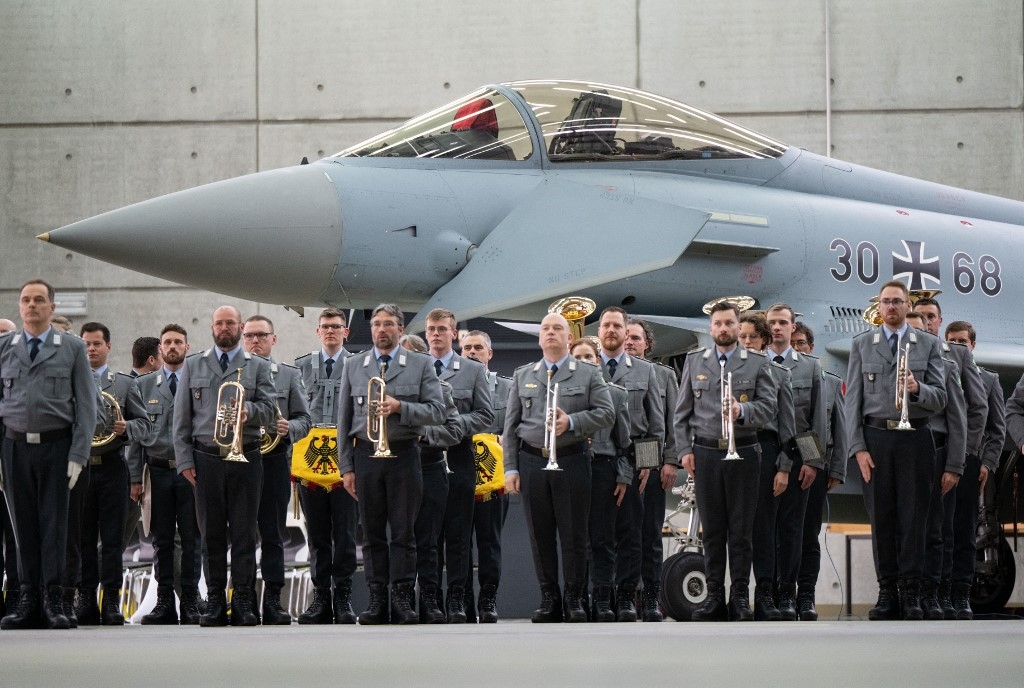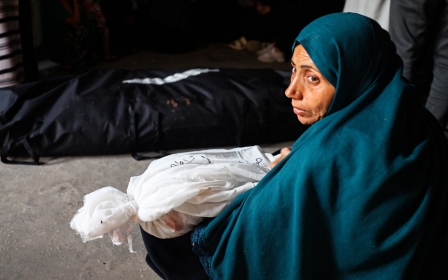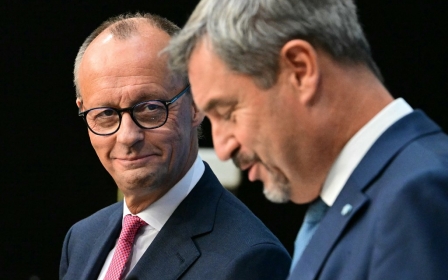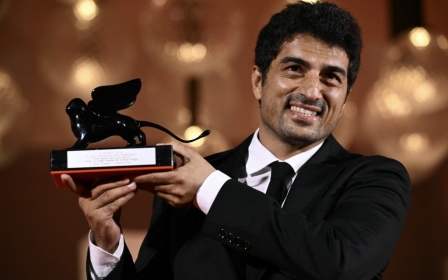Germany reconsiders Turkey's Eurofighter request as regional tensions rise

Germany is reconsidering Turkey’s request to purchase Eurofighter warplanes, a source familiar with the matter told Middle East Eye, after Berlin initially appeared reticent to sell the jets.
Since last year, Turkey has sought to buy at least 20 Eurofighter jets in a package reportedly valued at $5.6bn in total, but progress on the deal has been very slow due to some parties in the German government's coalition, like the Green Party, opposing the sale.
“We are taking another look at Turkey’s request with a fresh mind and will review it,” the source told MEE.
Asked about the government’s decision to revisit the sale, the source said that increasing tensions in the Middle East, such as fears of a war between Iran and Israel, as well as the growing Russian threat to Europe, has prompted a rethink.
Akif Cagatay Kilic, a chief advisor of Turkish President Recep Tayyip Erdogan, told Turkish journalists last week in a closed door meeting that there had been some progress on the Eurofighter deal but wouldn’t reveal details.
New MEE newsletter: Jerusalem Dispatch
Sign up to get the latest insights and analysis on Israel-Palestine, alongside Turkey Unpacked and other MEE newsletters
German media last week quoted Interior Minister Nancy Faeser as claiming that Ankara would expedite the repatriation of more than 15,000 Turkish citizens whose asylum requests had been denied. The source vehemently denied to MEE that the Eurofighter move had anything to do with the migration issues.
The jets are produced by a consortium of countries consisting of Germany, Spain, Italy and the UK. All support the sale except Germany, one European official told MEE.
The official added that if Germany decides to go ahead with the sale it will need to inform its consortium partners to begin the process, yet Berlin could still block the sale down the road in further stages.
Meanwhile, Turkish and German officials are trying to schedule an official visit by Prime Minister Olaf Scholz later this month.
'We flatly deny that we would accept the repatriation of Turkish citizens en masse to Turkey, there is no such deal'
- Turkish official
Turkey has been on Germany’s scrutiny list for a long time due to its use of German weapons, such as Leopard tanks, in internal security operations or land-based warfare in Syria.
Yet it seems that stance is softening. Der Spiegel reported over the weekend that Germany’s Federal Security Council, which meets in secret, has approved the purchase of $368m worth of weaponry by Turkey - the first such sale in years.
The sale package includes 100 anti-aircraft missiles and torpedoes for the Turkish navy, as well as large material packages for the modernisation of Turkish submarines and frigates.
Twenty-eight SeaHake torpedoes from Thyssenkrupp's naval division, material packages for the modernisation of Turkish U209 submarines and engine parts for Turkish corvettes and frigates.
A Turkish source familiar with the sale told MEE last week that there had been progress on the submarine parts, confirming Der Spiegel’s report.
Turkish foreign ministry officials, on the other hand, denied German media reports that alleged Turkey proposed to significantly increase the number of citizens that could be repatriated from Germany.
“We flatly deny that we would accept the repatriation of Turkish citizens en masse to Turkey, there is no such deal,” one senior Turkish official told MEE.
“We only decided to explore technical cooperation that would help German authorities to identify Turkish citizens whose passports or IDs are missing.”
The German reports suggested that Ankara would initially accept 200 Turkish citizens returning a week, rising to 500, in return for Berlin speeding up existing visa procedures for Turkish citizens.
There is currently a months-long wait time for visa appointments for Germany as it isn't issuing visas to Turkish people that last more than a year.
“This is also confirmation that Germany could do more on visas, even though they had been saying that they are doing their maximum. Isn't it ironic?” said the senior official.
A separate source from the German arms industry said that since the Solingen attack in August, where a Syrian refugee confessed to killing three people, Germany's government began to link a range of policies to immigration, fearing the rise of the far right.
“Even though they deny it,” the arms industry source said.
Middle East Eye delivers independent and unrivalled coverage and analysis of the Middle East, North Africa and beyond. To learn more about republishing this content and the associated fees, please fill out this form. More about MEE can be found here.





